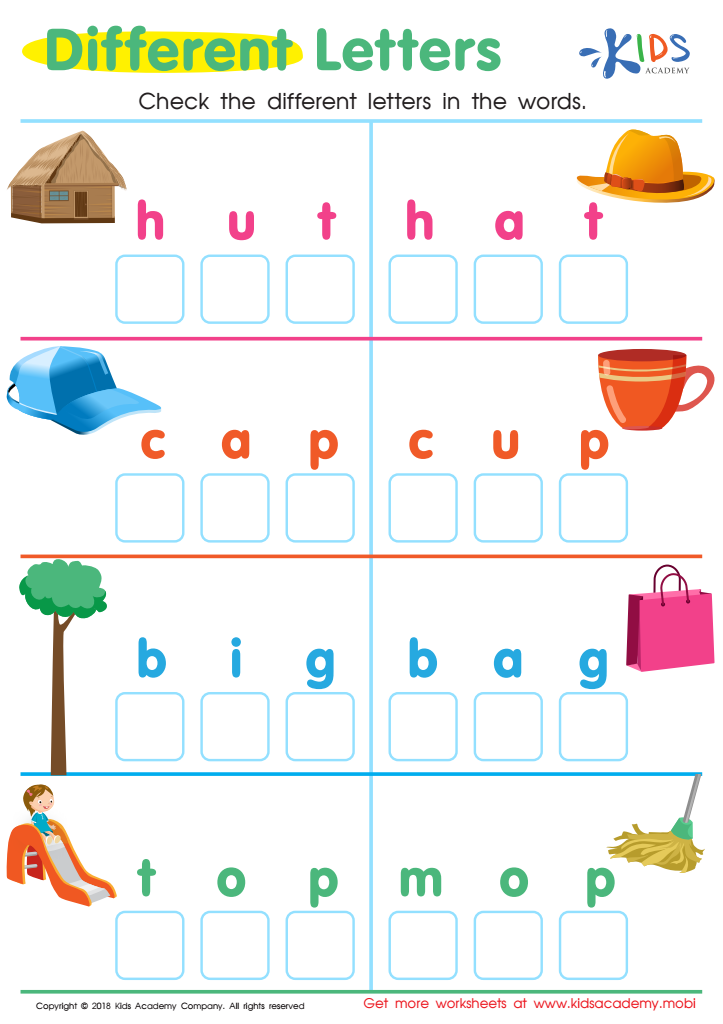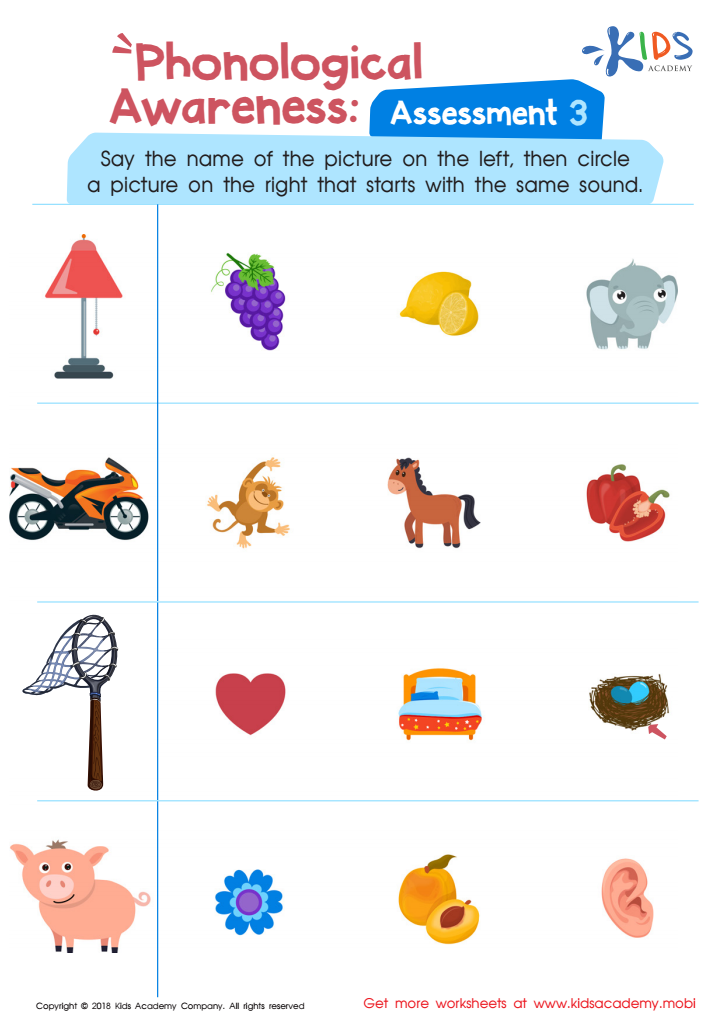Letter recognition Elementary Phonics Worksheets for Ages 4-5
5 filtered results
-
From - To
Unlock your child's potential with our engaging "Letter Recognition Elementary Phonics Worksheets" designed specifically for ages 4-5. These colorful, interactive worksheets will help young learners identify and familiarize themselves with the letters of the alphabet in a fun and playful manner. By incorporating visual aids and playful activities, these worksheets cater to different learning styles, promoting essential phonics skills. Children will develop confidence in recognizing letters, laying a strong foundation for reading and writing. Perfect for both classroom and home use, these worksheets ensure an enjoyable learning experience while reinforcing critical early literacy skills. Start your child's literacy journey today!


Long and Short U Worksheet


Different Letters Reading Worksheet


Phonological Awareness: Assessment 3 Worksheet


Long and Short E Worksheet


Phonological Awareness: Assessment 1 Worksheet
Letter recognition is a critical foundational skill in early literacy development, especially for children ages 4-5. Parents and teachers should prioritize this skill because it lays the groundwork for reading and writing proficiency. Early phonics instruction enables children to understand that letters represent sounds, which is essential for decoding words.
By recognizing letters, children begin to develop phonemic awareness, allowing them to manipulate sounds and blend them to form words. This skill not only promotes reading comprehension but also nurtures vocabulary development. Furthermore, children who are proficient in letter recognition are more confident as they approach reading activities, fostering a love for literature.
In addition, strong letter recognition skills are linked to greater academic success in later years. Ensuring children can identify letters early on prepares them for more complex phonetic patterns and spelling rules as they progress in their education. Involve parents in fun, engaging activities at home—like letter scavenger hunts or singing alphabet songs—and encourage teachers to integrate letter recognition games in the classroom. These efforts enhance engagement and learning, reinforcing the importance of this key skill in a child's educational journey. Early investment in letter recognition promotes lifelong learning and success.
 Assign to My Students
Assign to My Students










